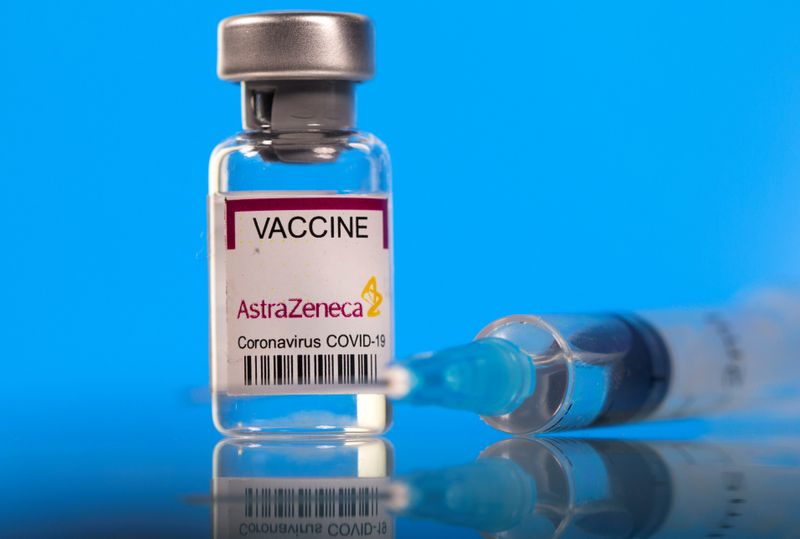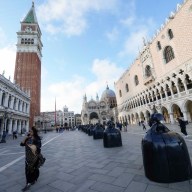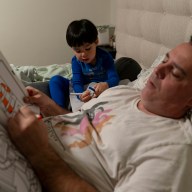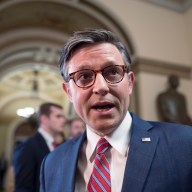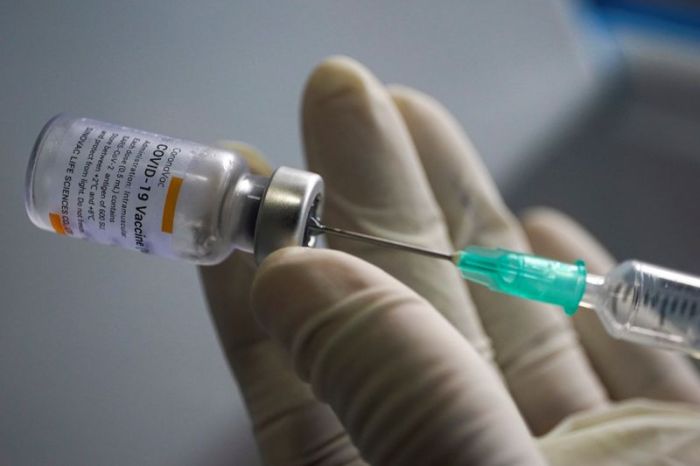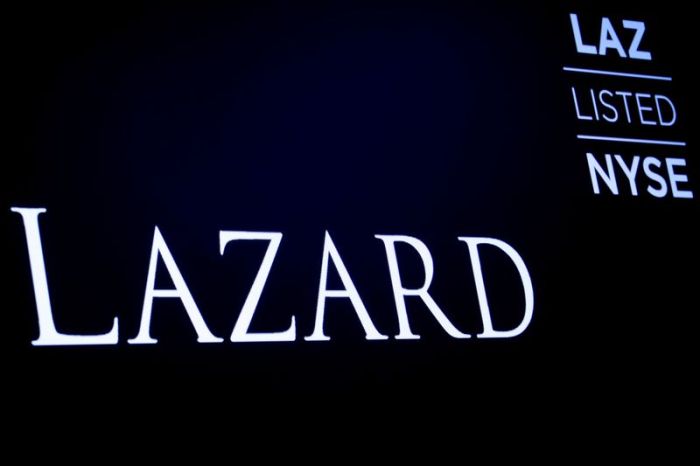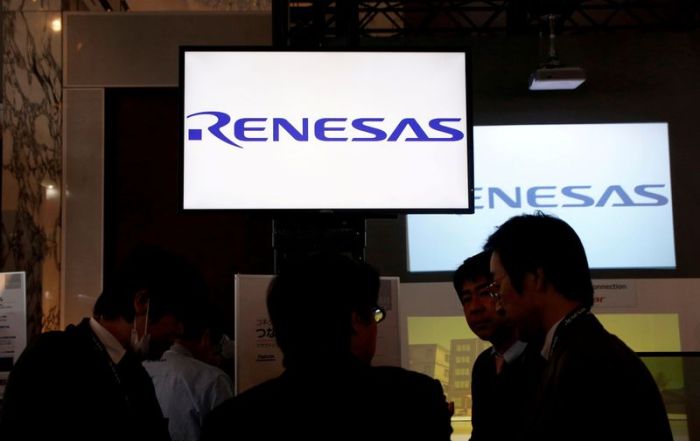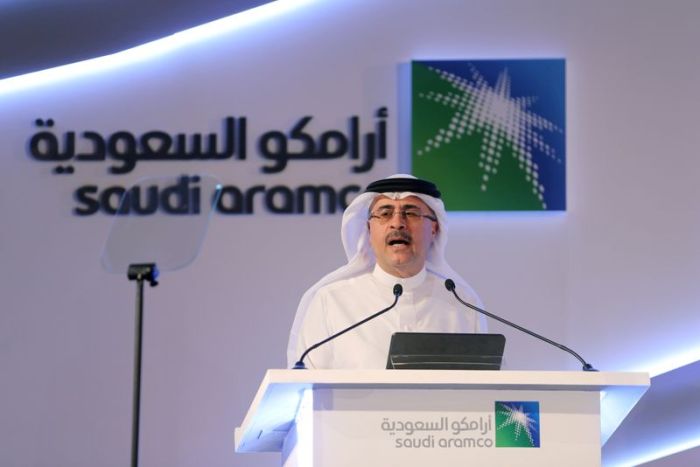LONDON/TAIPEI (Reuters) – AstraZeneca’s COVID-19 vaccine performed better than expected in a major late-stage trial, paving the way for its potential emergency authorization in the United States and boosting confidence in the shot after setbacks in Europe.
The drugmaker said on Monday that interim data from trials in Chile, Peru and the United States found the vaccine was 79% effective in preventing symptomatic COVID-19 and, crucially, posed no increased risk of blood clots.
AstraZeneca intends to request U.S. emergency authorization for the vaccine, which was developed in conjunction with Oxford University, in the coming weeks.
More than a dozen European countries, including Germany and France, halted use of the vaccine earlier this month after reports linked it to a rare blood clotting disorder in a very small number of people.
Germany and France resumed inoculations after the EU’s drug regulator said last week it was safe but an opinion poll on Monday showed Europeans remained sceptical about its safety.
Hailed as a milestone in the fight against the COVID-19 pandemic when it emerged as a vaccine contender last year, the AstraZeneca shot has been dogged by doubts over its efficacy, dosing regimen and possible side effects.
The shot has also been at the centre of a growing conflict between Brussels and London over so-called vaccine nationalism after a string of supply setbacks in Europe.
The latest trial results, based on 141 infections among 32,449 participants, have yet to be reviewed by independent researchers but they help address some concerns, analysts said.
U.S. infectious diseases expert Anthony Fauci said the U.S. trial found no indication at all of the rare blood clots, although there were only about 30,000 people in the study.
‘VERY EFFECTIVE AND SAFE’
“It is clear this vaccine has very good efficacy (remember that 60% was, prior to any trials being started, regarded as a good target), and that this efficacy does not show a notable decline at older ages,” Stephen Evans, professor of pharmacoepidemiology at the London School of Hygiene & Tropical Medicine, said.
The trial was almost three times larger than an earlier British study. For every two people given the vaccine, one person received a placebo, whereas in the British trial both groups were about the same size.
About 20% of the volunteers were aged 65 and above in the latest trial while only 5.7% were in the previous study, which had made some European countries initially hesitant about using the AstraZeneca shot on older people.
“Seeing this data now I hope gives others increased confidence that this is a very effective and safe vaccine,” Mene Pangalos, an AstraZeneca executive vice-president, told a news briefing.
AstraZeneca shares closed the day up 3.6% in London, their highest since Feb. 19.
U.S. trials of rival vaccines from Pfizer and Moderna, which are being deployed in the United States, have showed efficacy rates of about 95%.
But the AstraZeneca vaccine, which is already widely used outside the United States, is seen as crucial in tackling the spread of COVID-19 across the globe because it is easier and cheaper to transport than rival shots.
Analysts also noted AstraZeneca’s achievement of producing strong trial data against a backdrop of more infectious variants spreading in the United States and other countries.
Pangalos said this was very encouraging as there were undoubtedly variants of concern in circulation during the study.
POLITICAL BOOST?
Political leaders around the world have volunteered to take the AstraZeneca shot to try to boost confidence.
“I have just finished getting the injection, there is no pain at the injection site, and there is no soreness of the body,” Taiwan Premier Su Tseng-chang told reporters as the island launched its inoculation campaign on Monday.
British Prime Minister Boris Johnson received his first dose of the AstraZeneca vaccine on Friday, saying he did not feel a thing.
French President Emmanuel Macron has said he would take the shot if that’s what was offered after previously being quoted as saying the shot was “quasi-ineffective”.
The AstraZeneca shot has been granted conditional marketing or emergency use authorisation in more than 70 countries.
But it has yet to be approved in the United States, where President Joe Biden is stepping up the federal response to the pandemic by expanding testing, ramping up vaccinations and boosting production.
AstraZeneca forecast it would deliver 50 million doses to the United States within the first month of authorisation and 15 to 20 million does per month thereafter, drawing entirely on production sites in the country.
Preparing the data for submission to U.S. regulators would take a few weeks, AstraZeneca said, adding that the minimum duration of safety data required by the U.S. Food and Drug Administration had been reached.
THREE BILLION DOSES
Analysts at Citi said the United States, which last week agreed to loan shots to Mexico and Canada, would probably use its stockpile of AstraZeneca shots mainly to support other countries.
However, Ruud Dobber, another AstraZeneca executive vice president, said he would be “highly surprised if they won’t be used for Americans”.
The shot would be the fourth to be authorised by the United States following green lights for the vaccines developed by Pfizer/BioNTech, Moderna and Johnson & Johnson
AstraZeneca’s shot uses a modified version of a chimpanzee common cold virus to teach the human body to make proteins from the new coronavirus to generate an immune response and prevent infection.
Many Asia-Pacific countries are relying heavily on the AstraZeneca vaccine to end the pandemic. It is already being used in inoculation programmes in Australia, South Korea, the Philippines, Vietnam, Thailand, and India.
Some states in India, which has the highest coronavirus case load after the United States and Brazil, want to accelerate their vaccination drives. India reported its biggest daily death toll since January on Monday and the increase in cases was the highest since November.
As demand for vaccines rises in the country, the Serum Institute of India, the world’s biggest vaccine manufacturer, has delayed further shipments of the AstraZeneca shot to Brazil, Britain, Morocco and Saudi Arabia.
AstraZeneca aims to produce three billion doses this year, with the Serum Institute making most of the shots destined for poorer nations.
In Europe, meanwhile, the EU has threatened to block exports of COVID-19 vaccines to Britain to safeguard scarce doses for its own citizens, with Commission President Ursula von der Leyen saying the epidemiological situation was worsening.
(GRAPHIC – Astrazeneca shares lag rivals: https://fingfx.thomsonreuters.com/gfx/mkt/qmyvmrjrnpr/AZ.PNG)
(Reporting by Ludwig Burger in Frankfurt; Additional reporting by Pushkala Aripaka and Muvija M in Bengaluru, Krishna Das in New Delhi, Colin Packham in Canberra, Stanley Widianto in Jakarta, Sangmi Cha in Seoul, Neil Jerome Morales in Manila and Kate Kelland in London; Writing by Miyoung Kim and Barbara Lewis; Editing by Ana Nicolaci da Costa, Carmel Crimmins and David Clarke)

